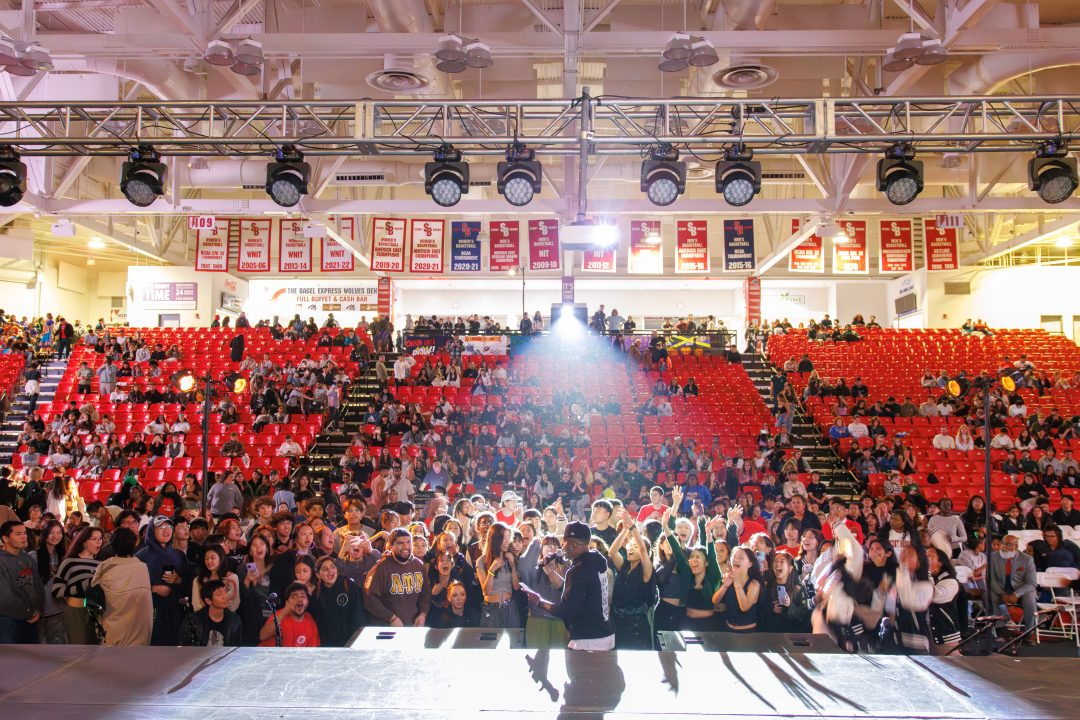
The SBU Bioethics Society, a new club this semester at Stony Brook University, held its first-ever general body meeting on March 2 in the Frank Melville Jr. Memorial Library.
According to SB Engaged, the Bioethics Society allows students to explore a diverse range of subjects in bioethics. Students, regardless of whether they are familiar with bioethics, are encouraged to visit the club to learn about ethical issues faced by the scientific community.
“The Bioethics Society is a club that provides a safe space for students to talk about controversial topics in bioethics in a fun and engaging way,” Lamiya Jubaed, a sophomore biology major and the club’s president and founder, said. “It’s more of discussing the facts [and] really getting a feel of different opinions and perspectives.”
She added that Stony Brook University students from any major can join the Bioethics Society.
Jubaed, who transferred from Hunter College in the fall, said she “found it really interesting that all the physicians were talking about all these issues in the health care field that they were discovering once they became doctors.”
When she transferred to Stony Brook University, she discovered there was no bioethics club.
“[There are] so many people here trying to be pre-health, and it’s a great opportunity for everybody to have those resources, have exposure to that, and really learn more so that when they do get to their careers, they already have experience with this,” she said.
Bioethics, according to the Center for Practical Bioethics’ website, is the question of morality “in the context of modern medicine and healthcare.” Bioethics mixes together fields such as history and philosophy with other fields like health policy and medicine to explore questions about how to ethically handle issues in healthcare worldwide, what the goal is for life sciences — and even the meaning of life and death.
Stony Brook University lists several graduate courses in bioethics on their website such as HCB 511 Bioethics, Disability & Community, HCB 502 Landmark Cases in Bioethics and HCB 514 Global Bioethics.
Caroline Gallager, a freshman electrical engineering major and the club’s vice president, said she hopes to help members become better speakers and debaters.
“One thing that I’m going to be doing [as the Vice President] is teaching everybody argumentation and public speaking,” she said. “I think that it’s really important if you want to be an advocate for change that you actually know how to express your idea [and] engage in meaningful and thoughtful discussions with people who might disagree with you.”
Gallager also touched on the importance of discussing bioethical topics such as CRISPR and GMOs.
CRISPR, according to the Jackson Library’s website, stands for “Clustered Regularly Interspaced Short Palindromic Repeats.” A video on the website by the McGovern Institute explains that CRISPR is a form of genetic editing that utilizes bacteria to alter DNA. The Jackson Library states that one of the ethical concerns that comes with this technology is that it could be used to alter human embryos.
The Purdue University’s College of Agriculture explains that GMO stands for “Genetically Modified Organism.” As the name implies, GMOs are living organisms that were genetically changed in some way. A lot of people have raised questions about the ethics and impact of genetically modifying organisms, especially crops, out of concern about potential harm to human health, the environment and even the “unnaturalness” of playing with DNA.
The Bioethics Society meeting on March 2 focused on welcoming new and potential members to the club.
Students were encouraged to participate in a multitude of games, such as a trivia game where students answered a series of questions about the club’s e-board and a debate game in which students briefly explained why they supported a certain topic. Students also voted on potential names for the club’s mascot, a blue teddy bear knitted by Gallager.
Beia Fulgencio, a senior health science major, is a new member of the SBU Bioethics Society. She is studying to become a cardiologist and believes the club will provide her with new knowledge about the scientific world and ethics for her career.
“I took a professional ethics course … and I really wanted to continue it after the course,” she said. “Now that I have finished the course, I feel like this is gonna be an interesting continuation of it.”
Sophomore electrical engineering major, Brandon Banarsi, is considering joining the SBU Bioethics Society. He became interested in checking out the club after his friends suggested he look into it.
“The group looks fun, so maybe every day will be an enjoyable experience,” Banarsi said. He hopes to learn more about bioethics at the next club meetings.
















